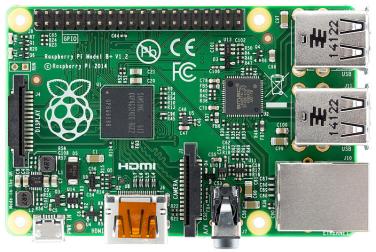
In this workshop, we'll learn about the possibilities that the Raspberry Pi has – a small, inexpensive circuit board developed in the United Kingdom that can work like a computer and was initially aimed at projects like those designed to provide an introduction to computing.
Raspberry Pi is an open-source hardware project and a not-for-profit initiative formed by a group of academics from Cambridge and it brings together GPL licences and open-source software and hardware in a way that is similar to other projects like Linux or Arduino. Its low price and its rapid expansion have allowed for the development of a great number of different types of project.
During the three workshop sessions (September 11, 18 and 25), we'll get an introduction to the characteristics and different types of circuit boards and get to know some of the most popular projects and experiments (the mini pc, entertainment centre, server and arcade machine – amongst other examples).
In this workshop, we'll learn about the possibilities that the Raspberry Pi has – a small, inexpensive circuit board developed in the United Kingdom that can work like a computer and was initially aimed at projects like those designed to provide an introduction to computing.
